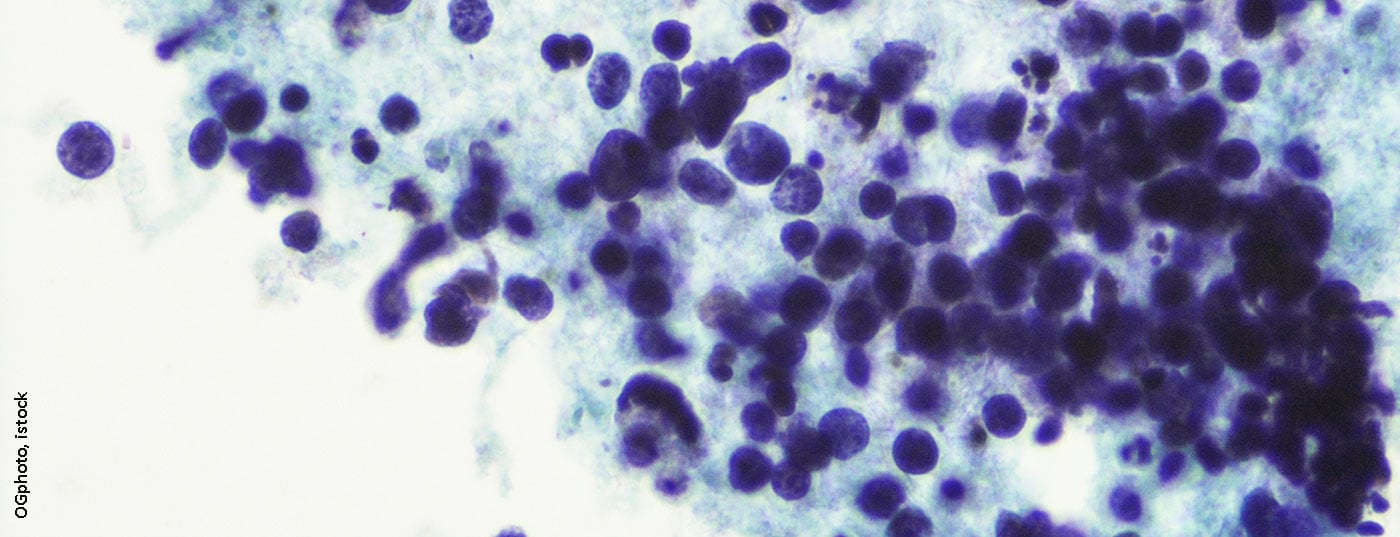Durvalumab was approved EU-wide in combination with chemotherapy of etoposide plus either cisplatin or carboplatin followed by durvalumab maintenance therapy for the first-line treatment of adults with advanced-stage small cell lung cancer (SCLC) (extensive disease, ED).
The European Commission’s approval extension for durvalumab for the first-line treatment of ED-SCLC in combination with chemotherapy is based on the positive results of the Phase III CASPIAN study, which demonstrated a statistically significant and clinically meaningful survival benefit for durvalumab plus chemotherapy in the first-line treatment of patients with ED-SCLC. In addition to a significant and sustained benefit in overall survival (OS), a proven benefit in progression-free survival (PFS) over 24 months was documented for the first time in maintenance.
Durvalumab (IMFINZI®) is a human monoclonal antibody directed against PD-L1 that blocks the interaction of PD-L1 with PD-1 and CD80 on T cells. As a result, it counteracts the immunosuppressive effect of tumor cells, enabling enhanced activation of T cells and the associated immune response. “The approval of durvalumab provides physicians with an important new therapeutic option that offers a significant overall survival benefit with a well-tolerated treatment,” said Luis Paz-Ares MD, Ph.D., Chairman, Department of Medical Oncology, University Hospital Doce de Octubre, Madrid, and Principal Investigator of CASPIAN.
Significant reduction in mortality risk
The CASPIAN trial met its primary endpoint, OS, in June 2019 and documented a 27% reduction in risk of death (hazard ratio [HR] 0.73, 95% confidence interval [KI] 0.59-0.91; p=0.0047). It also demonstrated an increased confirmed objective response rate for durvalumab plus chemotherapy (68% versus 58% for chemotherapy alone). Durvalumab in addition to chemotherapy also delayed the time to worsening of disease symptoms.
A follow-up analysis presented at ASCO 2020 showed sustained efficacy for durvalumab plus chemotherapy after a median follow-up of more than two years (OS: HR 0.75; 95% CI 0.62-0.91; nominal p=0.0032), with a median OS of 12.9 months versus 10.5 months for chemotherapy alone.
SCLC is a highly aggressive, fast-growing form of lung cancer that progresses rapidly despite an initial good response to chemotherapy, leading to early progression. The CASPIAN trial used a fixed dose of durvalumab (1500 mg) given every three weeks during induction in combination with chemotherapy for four cycles and every four weeks thereafter until disease progression as maintenance therapy.
Source: AstraZeneca
InFo PNEUMOLOGY & ALLERGOLOGY 2020; 2(3): 33.











